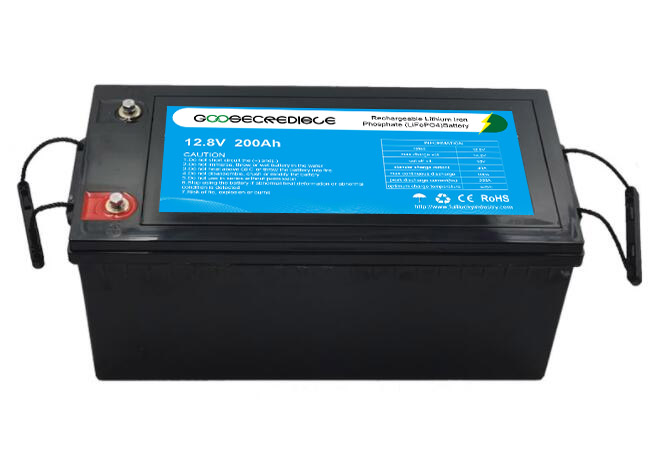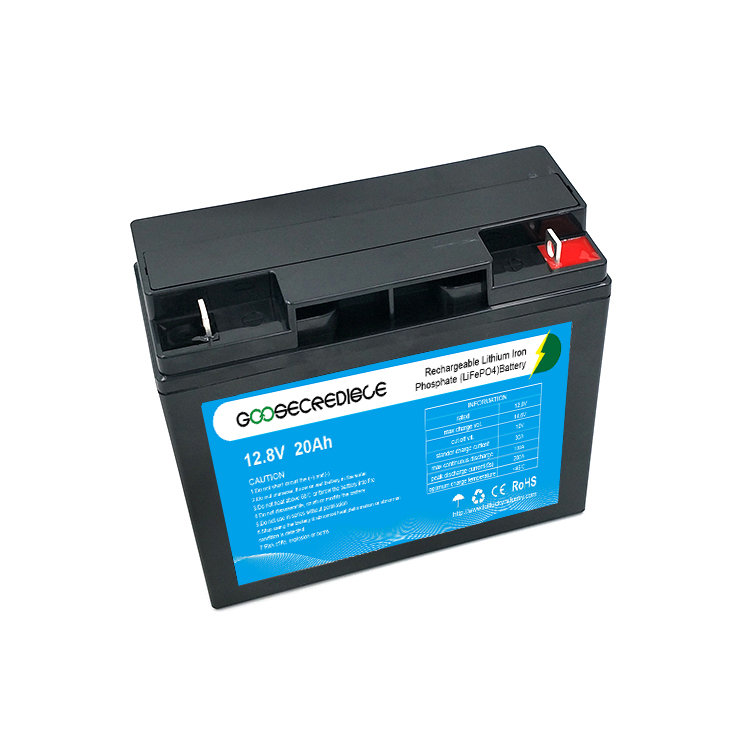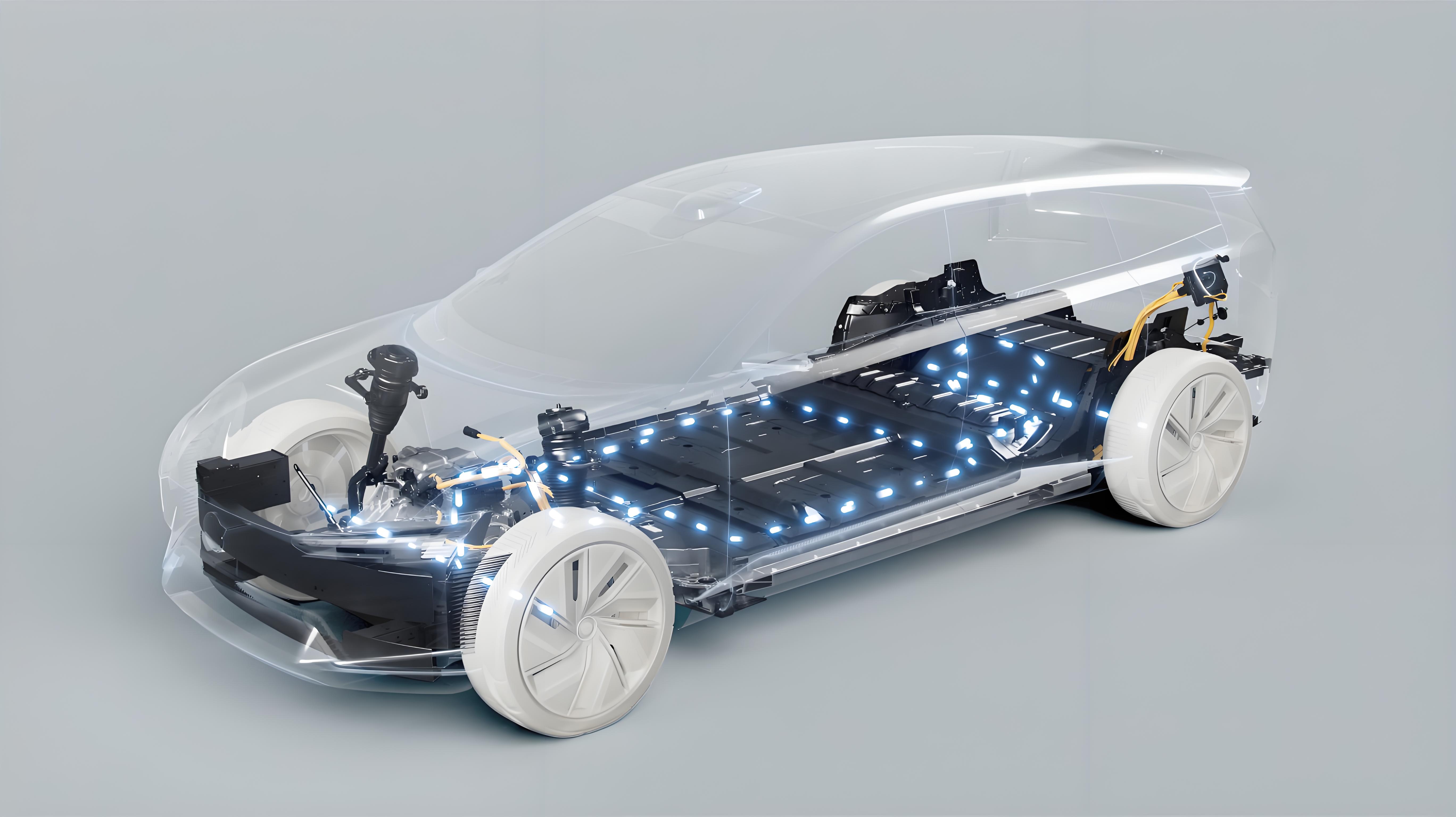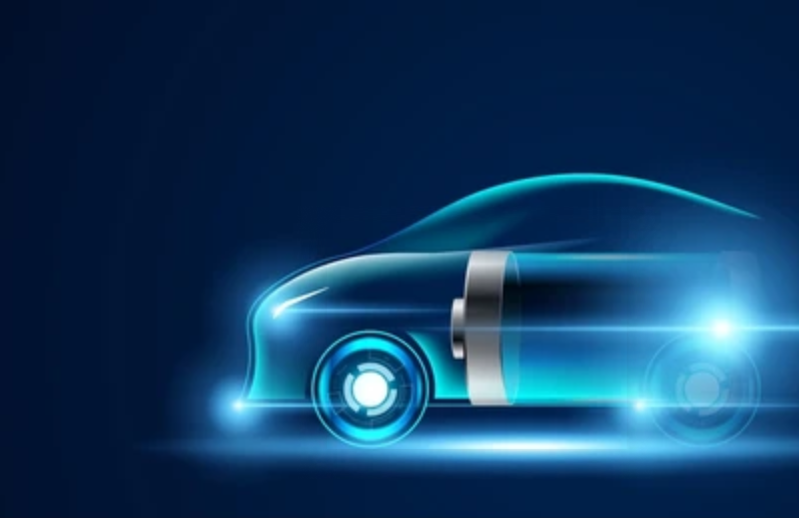От производства к сбыту: взгляд на китайскую индустрию аккумуляторов Lifepo4
China’s Lifepo4 battery industry has been growing rapidly in recent years, driven by the increasing demand for rechargeable batteries with high energy density and long cycle life. Lifepo4 batteries, which are a type of lithium-ion battery, have become a popular choice for applications that require high performance and reliability, such as electric vehicles, renewable energy systems, and portable electronics.
The Lifepo4 battery manufacturing process in China typically involves several stages, including raw material sourcing, electrode preparation, cell assembly, testing, and quality control. Many Lifepo4 battery manufacturers in China use advanced technologies and automated production lines to ensure consistent quality and high production efficiency.
In addition to manufacturing, China’s Lifepo4 battery industry also involves distribution and sales. There are many Lifepo4 battery suppliers in China that specialize in providing batteries for different applications, such as electric vehicles, energy storage systems, and consumer electronics. These suppliers offer a wide range of Lifepo4 batteries with different capacities, voltages, and form factors to meet the diverse needs of their customers.
The distribution channels for Lifepo4 batteries in China vary depending on the application and the customer’s location. For example, suppliers may sell their batteries directly to end-users, such as electric vehicle manufacturers or solar energy system integrators. Alternatively, they may sell their batteries to distributors, who then sell them to retailers or end-users.
The growth of China’s Lifepo4 battery industry has been supported by government policies that encourage the development of the new energy industry. The Chinese government has set ambitious targets for the adoption of electric vehicles and the development of renewable energy sources, which has led to increased demand for high-performance Lifepo4 batteries.
However, the industry also faces challenges such as fierce competition, rising raw material costs, and increasing quality standards. To remain competitive in the global market, Chinese Lifepo4 battery manufacturers need to continue investing in research and development, adopting new technologies and improving production efficiency.
Overall, China’s Lifepo4 battery industry is expected to continue growing in the coming years, driven by the increasing demand for high-performance and reliable batteries for various applications. As the industry continues to evolve, it will be interesting to see how Chinese battery manufacturers and suppliers adapt to changing market conditions and customer demands.
Time: 2023-4-20
In recent years, the automotive industry has been moving towards more sustainable and environmentally friendly options, and one such development has been the introduction of lithium starter batteries. These batteries are proving to be a game-changer in the automotive industry, and for good reason. In this article, we will discuss why the lithium starter battery is the future of automotive power. What is a Lithium Starter Battery? A lithium starter battery is a type of battery that is designed to start the engine of a vehicle. It is a lightweight and compact battery that is capable of delivering high levels of power quickly. Lithium starter batteries are made up of lithium-ion cells, which have a high energy density, making them ideal for use in vehicles. Advantages of Lithium Starter Batteries 1. High Energy Density One of the biggest advantages of lithium starter batteries is their high energy density. This means that they can store a large amount of energy in a small space, making them much more compact and lightweight than traditional lead-acid batteries. Lithium batteries can have a weight reduction of up to 70% compared to lead-acid batteries. 2. Faster Charging Lithium starter batteries also have a faster charging time than traditional batteries. They can be charged up to 10 times faster than lead-acid batteries. This is because they have a higher charging efficiency, which means that they can convert more of the electricity they receive into stored energy. 3. Longer...
Time: 2023-7-27
In recent years, there has been a significant shift towards the use of lithium batteries in various applications. These batteries offer numerous advantages over traditional lead-acid batteries, including longer lifespan, higher energy density, and faster charging capabilities. One such lithium battery that has gained considerable popularity is the 100Ah Lithium Iron Phosphate (LiFePO4) battery. The 100Ah LiFePO4 battery is a powerful energy storage solution that is widely used in different industries and applications. Its impressive capacity of 100 Ampere-hours (Ah) makes it suitable for a wide range of uses, from solar energy systems to electric vehicles and even marine applications. Compared to lead-acid batteries, this lithium battery offers a much higher energy density, allowing for a smaller and lighter design. One of the key advantages of the 100Ah LiFePO4 battery is its exceptional cycle life. It is capable of enduring a much larger number of charge-discharge cycles compared to other lithium batteries. With a cycle life of over 2000 cycles at 80% depth of discharge (DOD), this battery can last for many years, providing a reliable and long-lasting power source. This makes it an ideal choice for applications where frequent cycling is required, such as off-grid solar systems or electric vehicles. Efficiency is another remarkable feature of the 100Ah LiFePO4 battery. It boasts a high charge and discharge efficiency, allowing for more efficient use of stored energy. This means that a larger percentage of the energy stored in the battery is actually available for use, resulting in...
Time: 2023-7-13
Electric vehicles have been gaining popularity around the world due to their sustainability and environmental benefits. In recent years, this trend has extended to the dirt bike industry, with the emergence of electric dirt bikes. These bikes are an exciting alternative to traditional gasoline-powered dirt bikes, offering numerous advantages. One of the key components that make electric dirt bikes superior is the lithium battery. Lithium batteries have revolutionized the electric vehicle industry, and their advantages extend to electric dirt bikes as well. These batteries are lightweight, durable, and provide a high energy density, making them an ideal power source for off-road adventures. Let's explore further the advantages of using a lithium battery in an electric dirt bike. Firstly, the lightweight nature of lithium batteries makes electric dirt bikes more maneuverable and agile. Traditional lead-acid batteries used in gasoline-powered dirt bikes are heavy and can significantly affect the bike's handling. In contrast, lithium batteries are significantly lighter, allowing riders to easily navigate through rough terrains and perform jumps and stunts with greater ease. This weight reduction also contributes to improved acceleration, offering riders a thrilling and exhilarating experience. Secondly, lithium batteries have an impressive energy density, meaning they can store more energy in a smaller package. This high energy density allows electric dirt bikes to cover longer distances on a single charge compared to traditional lead-acid batteries. Riders can enjoy extended off-road adventures without worrying about running out of power. Additionally, the high energy density also translates to...
Time: 2024-8-24
Today, as the electric vehicle industry is booming, lithium-ion automotive batteries play an important role as the core power source. This article will provide an in-depth analysis of the technical composition, performance characteristics, and current market conditions of lithium-ion automotive batteries, but will not cover specific application areas, innovative technologies, and future prospects. Technical Composition Lithium-ion automotive batteries are mainly composed of cells, modules, battery packs and battery management systems (BMS). As the basic unit of the battery, the cell consists of a positive electrode, a negative electrode and a non-aqueous liquid electrolyte. The positive electrode materials mainly include lithium iron phosphate (LFP), lithium nickel cobalt manganese oxide (NCM) and its derivatives such as lithium nickel cobalt aluminum oxide (NCA), etc. Each material has its own advantages and disadvantages in terms of safety, energy density and cost. The negative electrode is usually made of graphite material, which forms an irreversible SEI film during the first charge and discharge, resulting in partial capacity loss. Performance Characteristics Lithium-ion batteries have been widely used in electric vehicles because of their unique performance advantages. First, lithium-ion batteries have a high energy density and can store a large amount of electrical energy in a relatively small volume and weight, which is critical to improving the range of electric vehicles. Second, lithium-ion batteries have a long cycle life and can withstand multiple charge/discharge cycles without significant attenuation, which helps reduce the long-term cost of ownership of electric vehicles. In addition, lithium-ion batteries also have the advantages...
Time: 2023-6-14
As technology continues to evolve, so does the need for more efficient and reliable power storage solutions. The traditional lead-acid batteries have been the go-to power storage solution for many years, but they are slowly being replaced by lithium batteries. Lithium batteries have become very popular due to their high energy density, long lifespan, and fast charging capabilities. One of the best lithium batteries in the market today is the 100Ah LiFePO4 lithium battery. The 100Ah LiFePO4 lithium battery is a high-performance battery that offers a wide range of benefits compared to traditional lead-acid batteries. Below are some of the advantages of using a 100Ah LiFePO4 lithium battery: High Energy Density: The 100Ah LiFePO4 lithium battery has a high energy density, which means it can store more energy in a smaller space than traditional lead-acid batteries. This makes it an ideal solution for applications where space is limited. Long Lifespan: The 100Ah LiFePO4 lithium battery has a longer lifespan compared to traditional lead-acid batteries. It can last up to 10 years, which is almost three times longer than lead-acid batteries. Fast Charging: The 100Ah LiFePO4 lithium battery can be charged up to 80% of its capacity within 1-2 hours, which is much faster than traditional lead-acid batteries. Lightweight: The 100Ah LiFePO4 lithium battery is much lighter than traditional lead-acid batteries. This makes it easier to transport and install. Safe: The 100Ah LiFePO4 lithium battery is a much safer option compared to traditional...
Time: 2023-7-17
When it comes to batteries, there are various types available on the market, each designed for specific uses. Two commonly used types are deep cycle batteries and starting batteries. Even though they may seem similar, they have distinct differences that make them suitable for different applications. In this article, we will explore the disparities between deep cycle batteries and starting batteries, helping you understand their unique characteristics and choose the right one for your needs. Firstly, let's take a closer look at deep cycle batteries. As the name suggests, deep cycle batteries are designed to provide a steady and continuous supply of power over an extended period. These batteries are commonly used in applications that require sustained energy output, such as recreational vehicles (RVs), boats, golf carts, and solar energy systems. Deep cycle batteries are built with thicker plates and a denser electrolyte solution, enabling them to withstand repetitive deep discharge cycles without significant damage to their overall capacity. Unlike deep cycle batteries, starting batteries are designed to deliver a high burst of power for short periods, specifically to start an engine. They are commonly found in cars, motorcycles, trucks, and other vehicles that require a powerful jolt to start the engine. Starting batteries are constructed with thinner plates and a higher concentration of electrolyte, allowing for a quick discharge of energy. One of the critical differences between these two types of batteries is their capacity to handle deep discharges. Deep cycle batteries can withstand discharges of...
Time: 2024-11-8
Today, as global climate change and environmental protection become increasingly important, the automotive industry is undergoing a profound transformation. In this transformation, automotive lithium batteries, as the core components of new energy vehicles, are leading the automotive industry into a greener, more environmentally friendly and sustainable future with their unique advantages. This article will provide you with an in-depth understanding of the development history, key technologies, market trends and their impact on the automotive industry and society at large of automotive lithium batteries. 1. Development History of Automotive Lithium Batteries The research, development and application of automotive lithium batteries can be traced back to the end of the last century. With the rapid development of the new energy vehicle industry, lithium battery technology has also made great progress. From the initial lithium cobalt oxide battery, to the later lithium manganese oxide battery, lithium iron phosphate battery, to the now highly anticipated ternary lithium battery and solid-state battery, the energy density, cycle life, safety performance and other aspects of automotive lithium batteries have been greatly improved. 2. Key Technologies of Automotive Lithium Batteries The key technologies of automotive lithium batteries mainly include battery materials, battery management systems (BMS), and battery thermal management systems. In terms of battery materials, researchers are committed to developing new battery materials with higher energy density, longer cycle life and higher safety. The BMS is responsible for monitoring the status of the battery and ensuring that the battery operates within a safe and efficient range. Battery thermal...
Time: 2023-12-8
When it comes to embarking on outdoor adventures, having a reliable power source is crucial. Whether you are camping in the wilderness, exploring remote areas, or simply enjoying a weekend getaway in your camper van, a lithium camper battery can be your ultimate power solution. With its versatility, durability, and long-lasting performance, a lithium camper battery is designed to meet the power needs of even the most adventurous souls. One of the standout features of a lithium camper battery is its lightweight design. Compared to traditional lead-acid batteries, lithium batteries are significantly lighter, making them ideal for campers and adventurers who value portability. The lightweight nature of these batteries allows you to carry them easily and effortlessly, ensuring that you can power your electronic devices and appliances without adding unnecessary weight to your vehicle or backpack. Apart from being lightweight, lithium camper batteries are also known for their impressive lifespan. Unlike traditional batteries that tend to degrade over time, lithium batteries offer an extended cycle life. This means that you can expect your lithium camper battery to last longer and provide consistent power for a more extended period. With a lithium camper battery by your side, you can confidently venture into the great outdoors, knowing that you have a reliable power source that will keep you connected and powered up throughout your journey. In addition to their durability, lithium camper batteries are also highly efficient. These batteries have a high energy density, which means that they can...





















